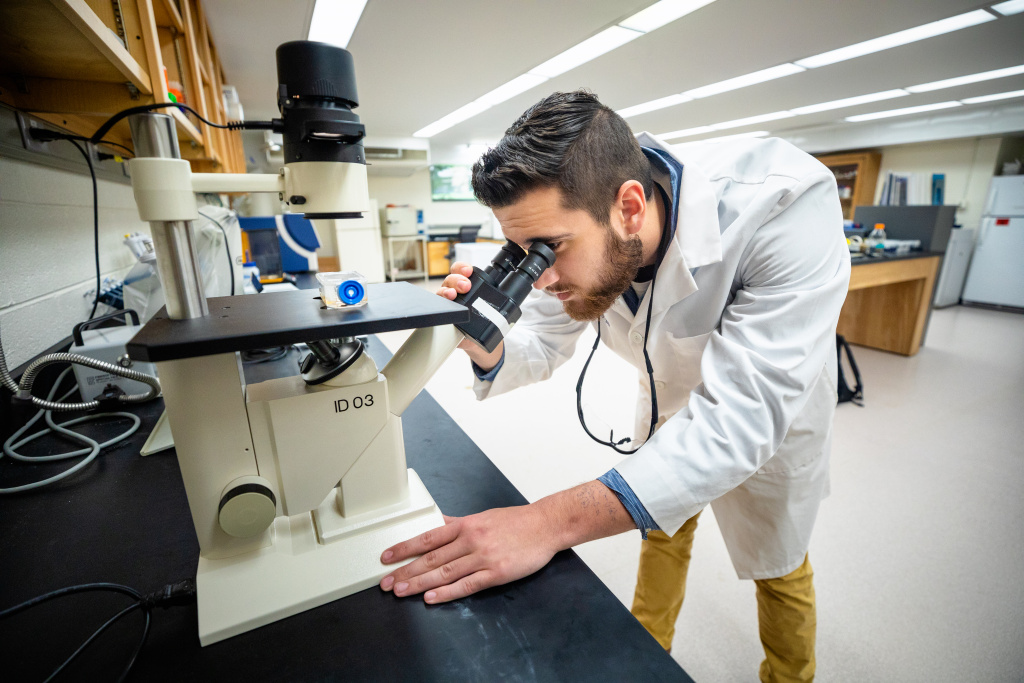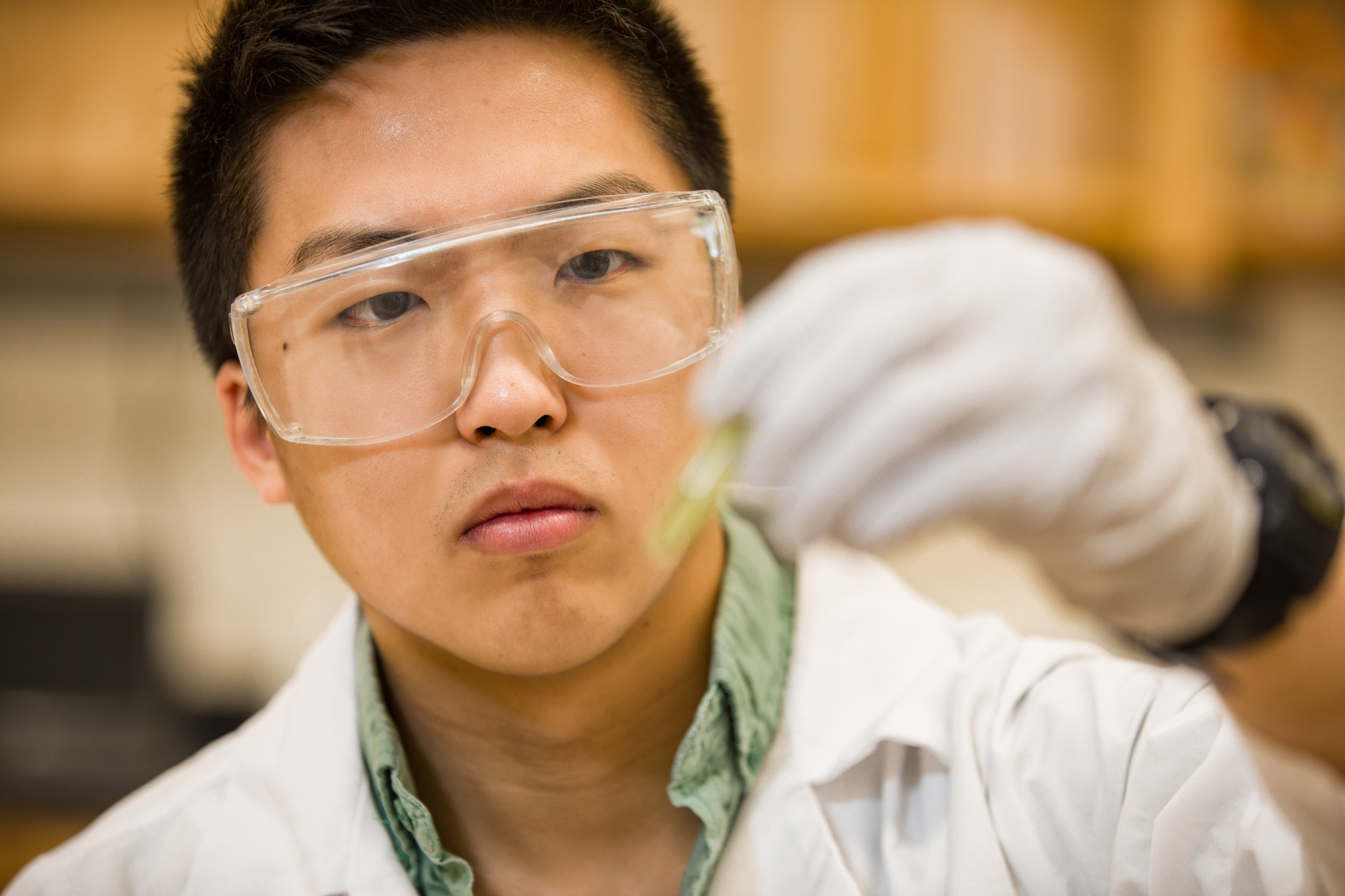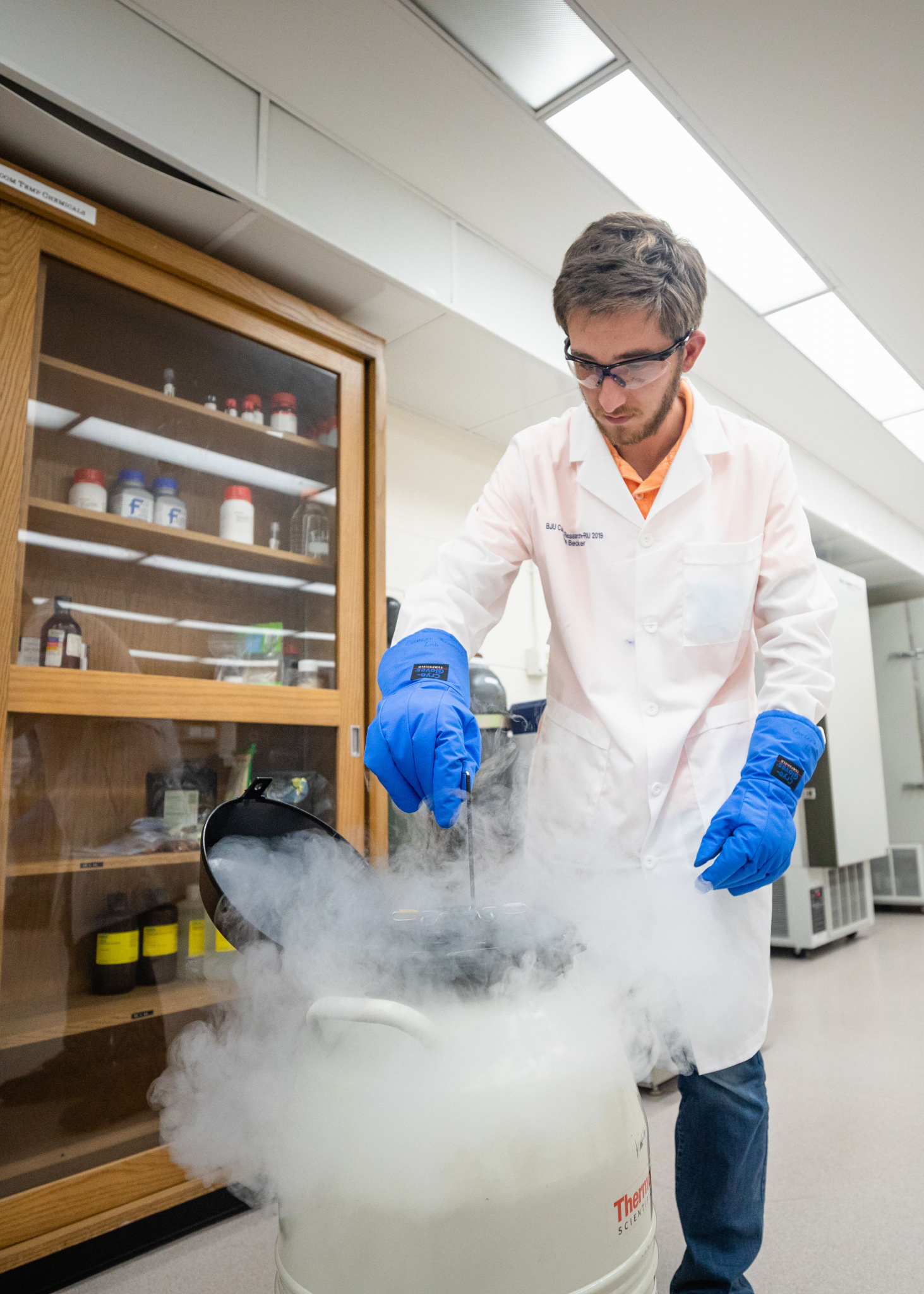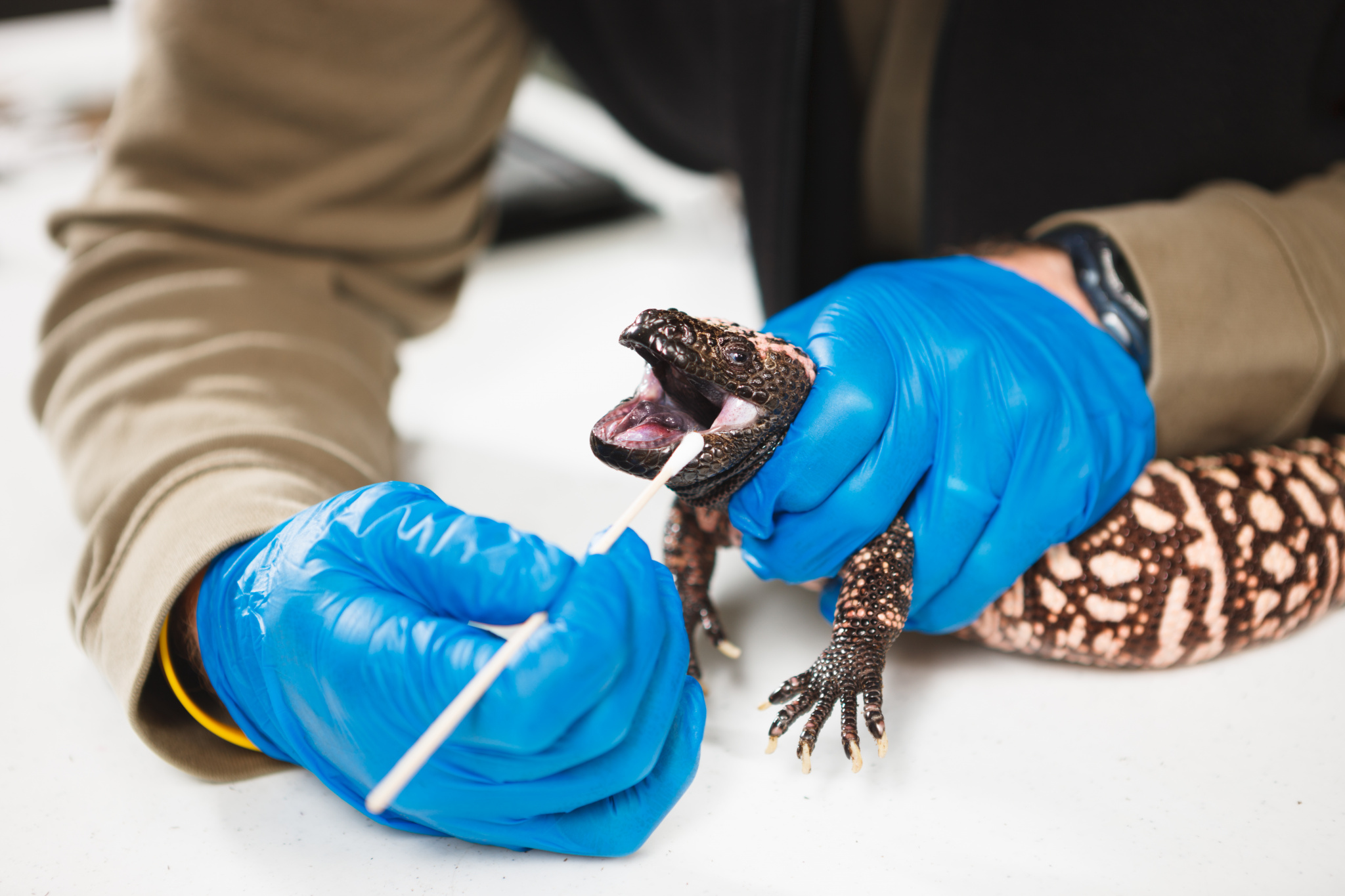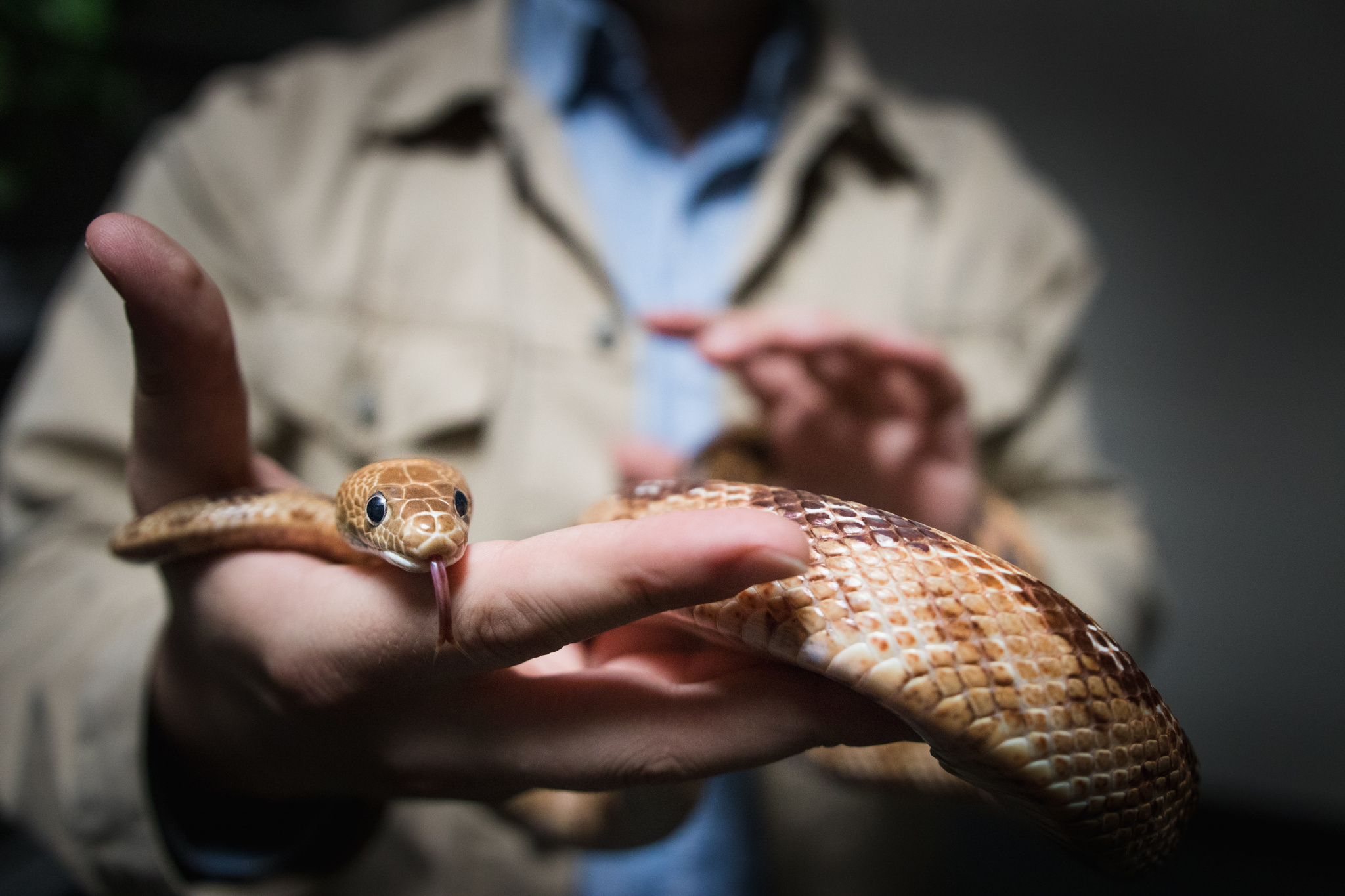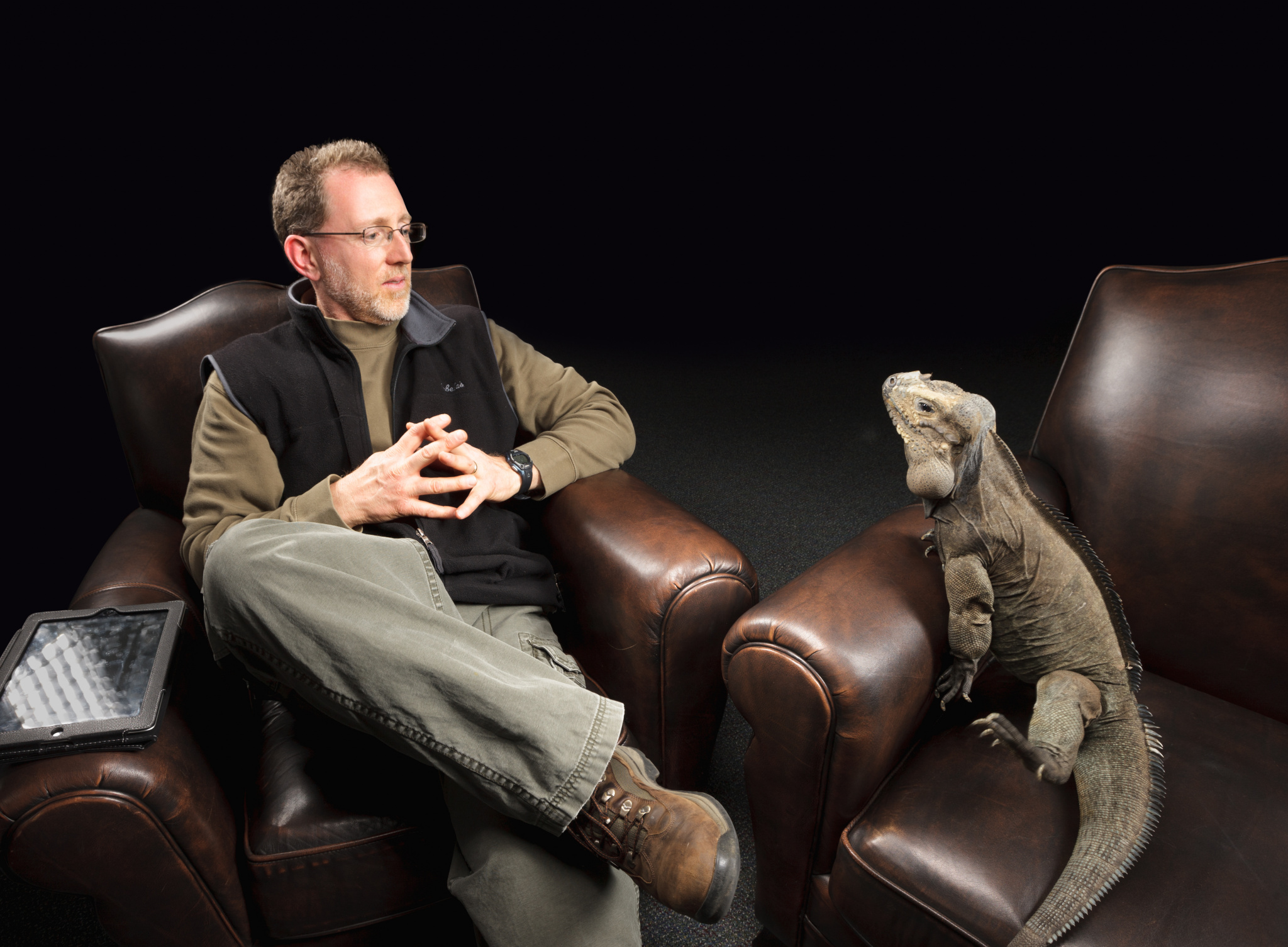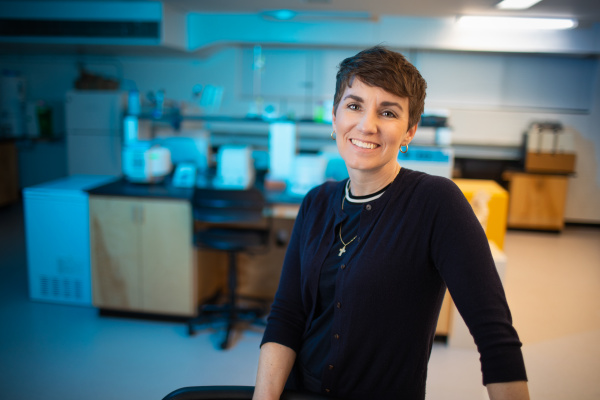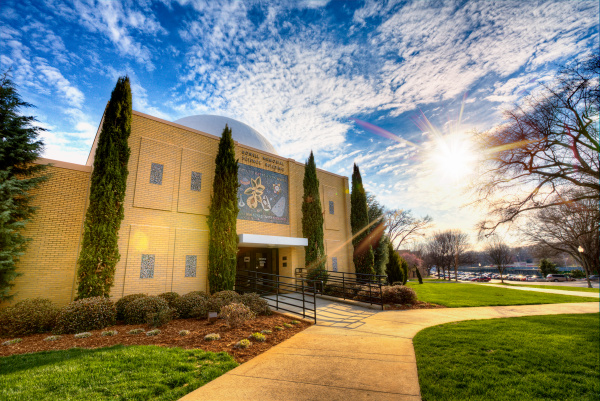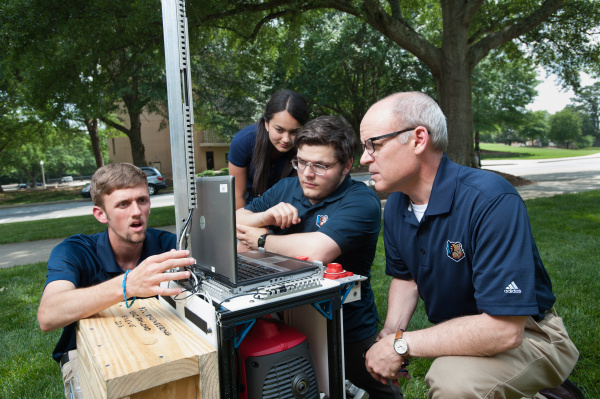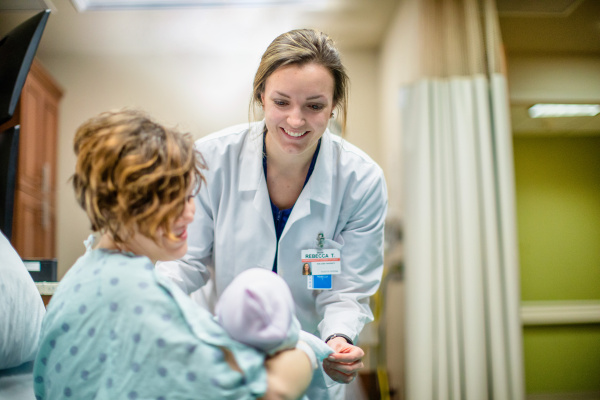While many are familiar with doctors and nurses, not many of us meet the people who work behind the scenes in the health industry. These scientists are the masterminds behind ground-breaking cancer research, life-saving medications and the well-being of our pets.
Biology graduates are essential in the health care workforce. Their curiosity, compassion and dedication drive them to pursue careers where they can study and protect living beings. As Dr. David Boyd, head of BJU’s biology department said, “Biology is the study of life. The people who study it are driven by their desire to know how the world works and how to improve it.”
BJU’s biology program is one of the few in the country that offers students an in-depth look at biology through a biblical lens. “When you think of the word unique, it means one of a kind. Within the universities around the world, what makes us unique is that we’re a high-level biology program that focuses on recent creation,” Boyd said.
What Concentrations Are Available?
Biology is a wide field. You could become a zoologist, a crime lab analyst or a geneticist — all with a degree in biology. By choosing a concentration, your classes will narrow in focus to prepare you for a specific field.
BJU offers five concentrations:
- Biomechanics — Teaches students how the skeletal and muscular systems work together. It will prepare you to enter the field of biomechanics, which is used in orthopedics, prosthetics, joint implants, dental parts, sport performance and ergonomics, among others.
- Biomedical research — The goal of biomedical research is to prevent and treat disease. Often, the research involves clinical trials of medications, devices, therapies or other treatments.
- Cell biology — Students typically go on to receive specialized degrees in biology, often in fields such as stem cell biology or molecular biology. Their work is in research, mostly in health-related fields for living beings or plants.
- Environmental technologies/resources — Preserving the environment through the use of sustainable energy is a hot topic. The environmental technologies/resources concentration prepares students to research pollution solutions and conservation.
- Zoo/wildlife biology — Concentrating on zoo/wildlife biology allows students to work with animals in a variety of ways. Opportunities available include working as an animal trainer, in a zoo or at a wildlife preserve. Earning a biology degree with a zoo/wildlife concentration is also the first step to veterinarian school.
Regardless of the concentration, every biology major has something in common: their focus on Scripture and its teaching on creation. “We are influenced by the Bible and that is something we really try to emphasize. We don’t want to just add a little bit of Bible at the end, but base all of our curriculum on the Scripture. . . . It influences what we teach and how we teach,” Boyd said.
What Projects Will I Have?
Independent Study
During senior year, biology students complete a two-semester independent study. Your choice depends on your concentration. “The neat thing about the independent study is that it really is independent. . . . Students can pick and choose what they want to do for their independent study based on their own interests,” Boyd said.
As a cell biology student, one of the independent study options that the faculty recommends is the cancer research lab. Students read recent research, learning the theories and methods currently being used in treating cancer, before planning their own experiments. (Read more in this BJUtoday article about summer research internships.)
You can also do your independent study in a fish lab with Dr. Derrick Glasco or study the molecular structure of spiders with Dr. David McKinney. “There are many options to choose from. The goal is for you to choose something that will help you and educate you further in the biology field,” Boyd said.
Capstone Project
Similar to the independent study, zoo/wildlife students have a capstone class called Animal Behavior. Required in this class is a major project at the Greenville Zoo.
“They observe the different animals and do a behavior project. Then they present their project before the staff at the Greenville Zoo. We found that to be a huge help in preparing our students,” Boyd said.
What Opportunities Are Available?
The program has some interesting opportunities for students to get their hands dirty — literally.
Cancer Research Lab
Students have the option of performing their independent studies in the cancer research lab, which allows them to perform research on a real-life problem. Each summer, a Research for Immersion for Undergraduates (RIU) program is offered, in addition to the independent studies. As part of the research team, you’ll collaborate on experiments, testing the anticancer properties of a variety of substances on three types of cancer cells. In addition, you’ll get experience in writing and applying for research grants.
Serpentarium
BJU’s serpentarium is home to more than 150 reptiles. Students work with the resident herpetologist to get hands-on experience in research with these animals and make contributions to the scientific community.
Cadaver Lab
BJU’s advanced cadaver lab — taught by an experienced medical doctor — sets its biology program apart from many undergraduate programs. The cadaver lab provides an extensive, three-dimensional view of the human body and equips you with first-hand knowledge that prepares you for your field.
What Comes Next?
As commencement approaches and you are looking ahead, you have several options for using your biology degree. Many students in the biology program go to graduate school after they graduate. “Our emphasis is first to go to graduate school, where they can then develop their skills and become specialized in whatever the Lord’s called them to do,” Boyd said.
While Boyd recommends graduate school, there are other opportunities that you can pursue. “There are some places like the Humane Society that will take students right out of college, and there are labs across the country that hire students right out of school. So there’s really a lot of opportunities,” Boyd said.
As you go out into the world, the faculty at BJU have one hope for you, according to Boyd: that you would glorify God in your work. As he said, “Biology is really there to glorify God.”
For more information or to apply online, visit BJU’s biology program page.


